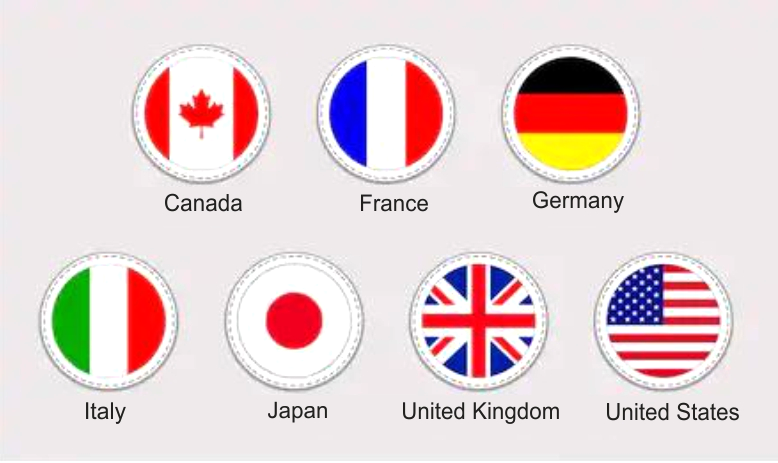International Relations
G7 Foreign Ministers’ Meet
- 08 May 2021
- 5 min read
Why in News
Recently, Foreign Ministers from the Group of Seven (G7) countries (USA, UK, Canada, France, Germany, Italy and Japan) held a meeting in London, UK.
- The 47th G7 Summit will be held in June 2021. The UK is the host country.
Key Points
- About:
- Invited Guests:
- Australia, India, South Korea, South Africa and the Chair (Brunei Darussalam) of the Association of Southeast Asian Nations (ASEAN).
- Australia, India, South Korea and South Africa will also join the G7 Summit in June.
- Australia, India, South Korea, South Africa and the Chair (Brunei Darussalam) of the Association of Southeast Asian Nations (ASEAN).
- Discussions:
- Russia’s Irresponsible and Destabilising Behaviour: This includes the large build-up of Russian military forces on Ukraine’s borders and in illegally-annexed Crimea.
- Related to China: Human rights violations and abuses in Xinjiang and in Tibet, especially the targeting of Uyghurs, members of other ethnic and religious minority groups.
- Called on China to respect Hong Kong’s high degree of autonomy and rights and freedoms (Basic Law).
- Condemned the military coup in Myanmar.
- Indo-Pacific:
- Support for the centrality of ASEAN on the Indo-Pacific.
- Reiterated the importance of maintaining a free and open Indo-Pacific which is inclusive and based on the rule of law, democratic values, territorial integrity, transparency, the protection of human rights and fundamental freedoms, and the peaceful resolution of disputes.
- International Rules-based Order:
- This can be described as a shared commitment by all countries to conduct their activities in accordance with agreed rules that evolve over time, such as international law, regional security arrangements, trade agreements, immigration protocols, and cultural arrangements.
- Invited Guests:
- Group of Seven (G7):

- About:
- It is an intergovernmental organisation that was formed in 1975.
- The bloc meets annually to discuss issues of common interest like global economic governance, international security and energy policy.
- The G7 does not have a formal constitution or a fixed headquarters. The decisions taken by leaders during annual summits are non-binding.
- The groundwork for the summit, including matters to be discussed and follow-up meetings, is done by the “sherpas”, who are generally personal representatives or members of diplomatic staff such as ambassadors.
- The leaders of important international organizations like European Union, IMF, World Bank and the United Nations are also invited.
- Issues:
- Not all of the G7 countries are among the most advanced now. India is both a military and economic giant but isn’t part of the G7. So, its expansion, just like that of the United Nations Security Council, is called for.
- About:
- India and G7:
- Previous Participation:
- The participation of India at the 45th summit in Biarritz, France, in August 2019 is a reflection of deepening strategic partnership and recognition of India as a major economic power.
- India was also invited for the 2020 summit hosted by the USA which could not take place due to the pandemic.
- Previously India had attended the G8 summit (it became G7 from G8 with the expulsion of Russia in 2014) five times between 2005 and 2009.
- Significance of India’s Engagement with G7:
- It provides an opportunity for India to develop cordial relations with developed countries.
- It will boost security cooperation with member countries in Indo-Pacific, particularly the Indian ocean.
- As current president of Brazil-Russia-India-China-South Africa (BRICS) and G20 president in 2023, India will play a key role driving in multilateral cooperation helping to build back better around the world.
- Previous Participation:






